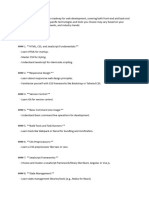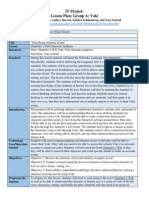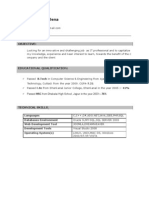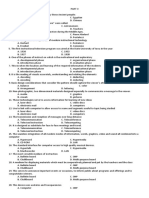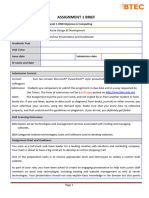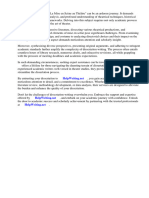0% found this document useful (0 votes)
16 views2 pagesWeb Development
Web development is the process of creating and maintaining websites or web applications, involving frontend, backend, and full-stack development. Key components include website structure, styling, interactivity, backend logic, and database management, with various tools and technologies used throughout the process. It encompasses different types of websites, such as static, dynamic, e-commerce, and web applications, making it essential in the digital age.
Uploaded by
Abi RamiCopyright
© © All Rights Reserved
We take content rights seriously. If you suspect this is your content, claim it here.
Available Formats
Download as PDF, TXT or read online on Scribd
0% found this document useful (0 votes)
16 views2 pagesWeb Development
Web development is the process of creating and maintaining websites or web applications, involving frontend, backend, and full-stack development. Key components include website structure, styling, interactivity, backend logic, and database management, with various tools and technologies used throughout the process. It encompasses different types of websites, such as static, dynamic, e-commerce, and web applications, making it essential in the digital age.
Uploaded by
Abi RamiCopyright
© © All Rights Reserved
We take content rights seriously. If you suspect this is your content, claim it here.
Available Formats
Download as PDF, TXT or read online on Scribd
/ 2



















